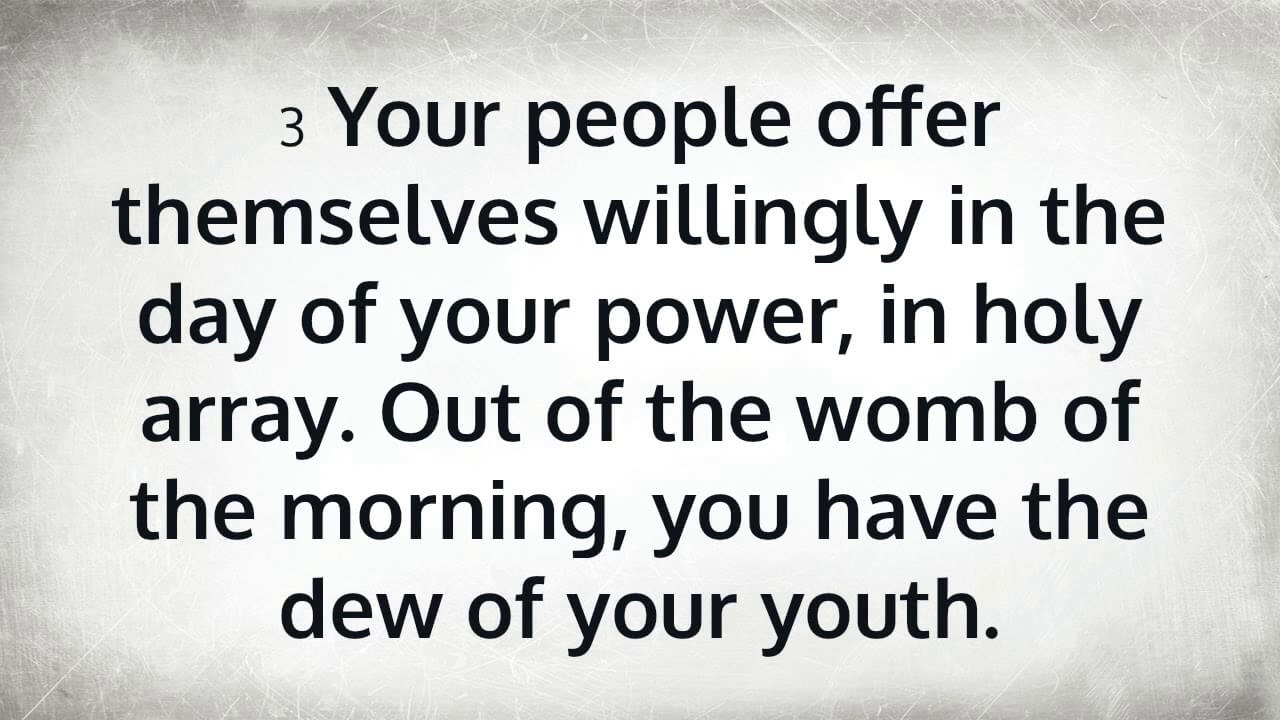Psalm 110

A Messianic Psalm by David
This Psalm about the Messiah,?is the scripture most quoted or referred to in the New Testament.? The English translation does not lend itself to clearly understanding who is speaking of whom.? Two Hebrew names of God, Yahweh and Adonoy, are translated “Lord,” and are key to understanding what is going on.
?
One day when Jesus was speaking to the Pharisees in Jerusalem, He asked them what they believed concerning the identity of the Messiah. From whom would the Promised One be descended? They answered correctly that He would be the Son of David. But Jesus showed them that according to Psalm 110 (which they acknowledged to be messianic) the Messiah would also be David’s Lord. How could He be David’s Son and David’s Lord at the same time? And how could David, the king, have someone who was his Lord on earth?
The answer of course was that the Messiah would be both God and Man. As God, He would be David’s Lord. As Man, He would be David’s Son. And Jesus Himself, combining in His Person both deity and humanity, was David’s Master and David’s Son.
It was the moment of truth for the Pharisees. Yet in spite of all the evidence, they were unwilling to acknowledge Jesus as the long-awaited Messiah. So we read:?
Now while the Pharisees were gathered together, Jesus asked them a question,?saying,??What do you think about the Christ (Messiah)? Whose son is he???They said to him, ?The son of David.??He said to them, ?How is it then that David, in the Spirit, calls him Lord, saying,???The Lord said to my Lord, ?Sit at my right hand, until I put your enemies under your feet????If then David calls him Lord, how is he his son???And no one was able to answer him a word, nor from that day did anyone dare to ask him any more questions.[Matthew 22:41-46]
?
Watch this video for a very thorough explanation of this remarkable Psalm by Luke Rhee: